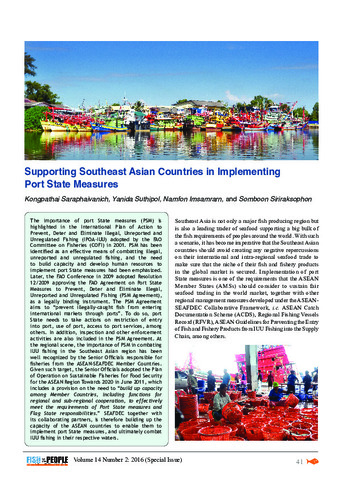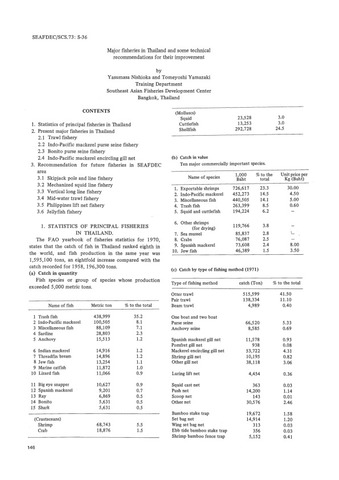| dc.description.abstract | The importance of port State measures (PSM) is highlighted in the International Plan of Action to Prevent, Deter and Eliminate Illegal, Unreported and Unregulated Fishing (IPOA-IUU) adopted by the FAO Committee on Fisheries (COFI) in 2001. PSM has been identified as an effective means of combating illegal, unreported and unregulated fishing, and the need to build capacity and develop human resources to implement port State measures had been emphasized. Later, the FAO Conference in 2009 adopted Resolution 12/2009 approving the FAO Agreement on Port State Measures to Prevent, Deter and Eliminate Illegal, Unreported and Unregulated Fishing (PSM Agreement), as a legally binding instrument. The PSM Agreement aims to 'prevent illegally-caught fish from entering international markets through ports'. To do so, port State needs to take actions on restriction of entry into port, use of port, access to port services, among others. In addition, inspection and other enforcement activities are also included in the PSM Agreement. At the regional scene, the importance of PSM in combating IUU fishing in the Southeast Asian region has been well recognized by the Senior Officials responsible for fisheries from the ASEAN-SEAFDEC Member Countries. Given such target, the Senior Officials adopted the Plan of Operation on Sustainable Fisheries for Food Security for the ASEAN Region Towards 2020 in June 2011, which includes a provision on the need to 'build up capacity among Member Countries, including functions for regional and sub-regional cooperation, to effectively meet the requirements of Port State measures and Flag State responsibilities.' SEAFDEC together with its collaborating partners, is therefore building up the capacity of the ASEAN countries to enable them to implement port State measures, and ultimately combat IUU fishing in their respective waters. | en |




